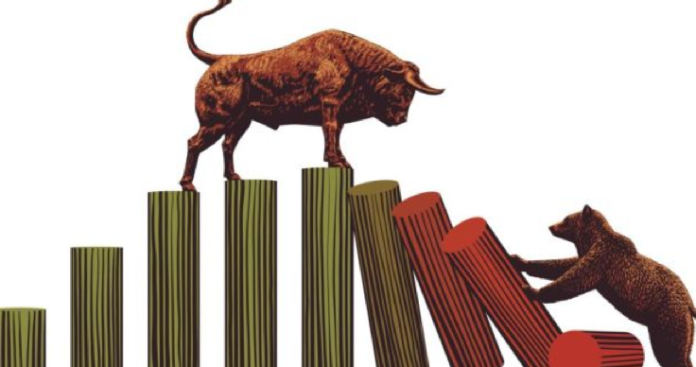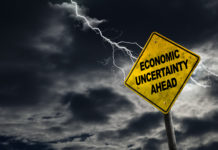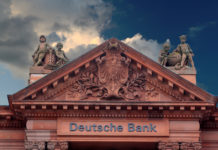Investopedia defines a stock market bull market as:
“A financial market of a group of securities in which prices are rising or are expected to rise. Bull markets are characterized by optimism, investor confidence and expectations that strong results should continue.”
The current bull market on Wall Street is now over 8 years old. The winning streak began for the S&P 500 back in 2009 when the great recession was at its worst. Since those dark days on Wall Street, the S&P has grown by over 250%. The U.S economy has experienced eleven bull markets since 1956. The biggest one (prior to our current streak) ran from 1990 to 2000 when the S&P gained 417%. No bull market however has ever made it to its 10th birthday.
Of course after the bull-run of 1990-2000, came the crash of the Dot Com bubble, and then market crash following the terrorist attacks of September 11, 2001. During that time the NY Stock Exchange suspended trading for four sessions which led to the market downturn of 2002. This crash resulted in the loss of $5 trillion in the market value of companies from March 2000 to October 2002.
What investors, fund managers, and other financial experts & economists are trying to predict now is when will the current bull market nosedive into a “bear market” (a market in which prices fall and continue to fall, thus encouraging the selling of stocks and other securities). As one would expect, it is very hard to try and figure out when the trends in the market might change.
But now according to a new survey of thirty of the world’s top fund managers and financial strategists, we may be zeroing in on when the next “bear market” will occur. Almost unanimously, the financial experts surveyed believe that the next U.S. recession will happen in 2019, and that the current bull market will end next year- entering into the first bear market since the global crisis. Back in 2002 the bear market in U.S. stocks wiped out more than $7 trillion dollars of value.
The poll was conducted by Bloomberg News and led by reporter Dani Berger. Watch below as Berger explains the results of the survey and why fund managers are pessimistic about the short term future of the economy and the stock market.
Some other results that came from the Bloomberg News survey of thirty of the globe’s top fund managers and strategists:
• Bonds are what investors are worrying about the most, but only a few of the fund mangers interviewed said they would reduce the amount of investments in bond funds and fixed-income holdings.
• Some of those interviewed said they were concerned about inflation picking up with a tightening labor markets in many major economies, and that they would purchase inflation protection to protect their client’s interests.
• There was also worry that policymakers with Federal Reserve and U.S. Central Bank might abandon its stimulus efforts prematurely, thus hurting the economy along with corporate profits.
There are other signs, from several independent sources that the U.S. stock market could be facing a major downturn. According to the outplacement firm Challenger, the number of job cuts this past May was 71% higher than it was in May 2016. This past May also saw U.S. manufacturing drop to an 8 month low and the third worst drop in U.S. construction spending in the last six years. Research shows that 39% of all millionaires plan to avoid investing in the coming months. And according to the Los Angeles Times, it is being projected that 25% of all shopping malls in the United States may close within the next five years.
Recently, Yahoo Finance reported that JP Morgan financial strategist Marko Kolanovic tracked a recent decline in stock correlations and he noticed that it directly mimicked what investors did before the big stock sell-offs and market downturns in 1994 and 2001.
In a letter to his clients Kolanovic wrote:
“Over the past year, correlation of stocks and sectors declined at an unprecedented speed and magnitude. A similar de-correlation occurred on only two other occasions over the last 30 years: in 1993 and 2000. Both of those episodes led to subsequent market weakness and an increase in volatility (in 1994, and 2001). The current decline in market correlations started following the US elections and was largely driven by macro (rather than stock specific) forces.”
A de-correlation in stocks means that stocks start moving in different directions, almost indiscriminately at different times, rather than in the same direction at the same time. Typically, a correlation in stock movement rises when investor worry increases; when panic starts, investors tend to just get rid of everything and sell- with no logic or reason.
All of this information adds up to a very tentative and volatile economy, and more sleepless nights for American retirees who are worried about their retirement investments being at risk on the stock market.













